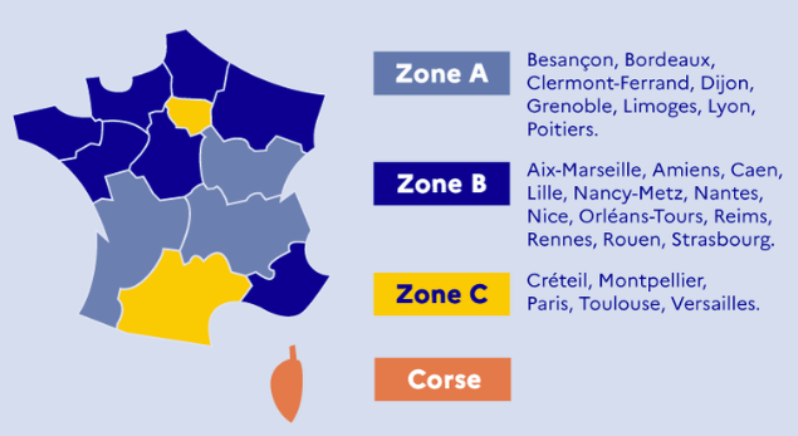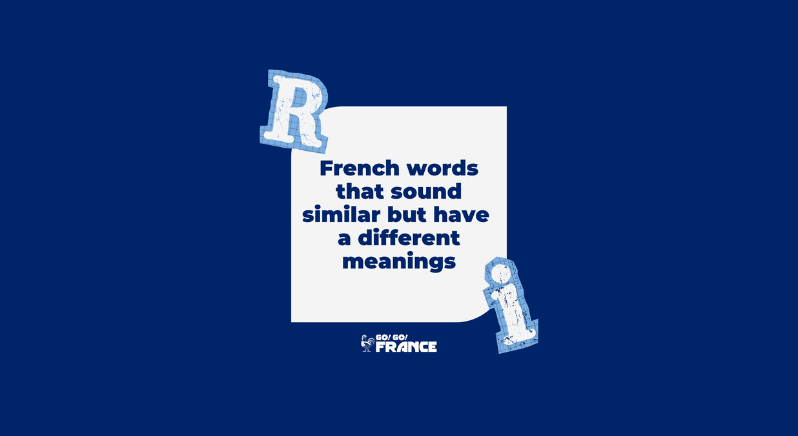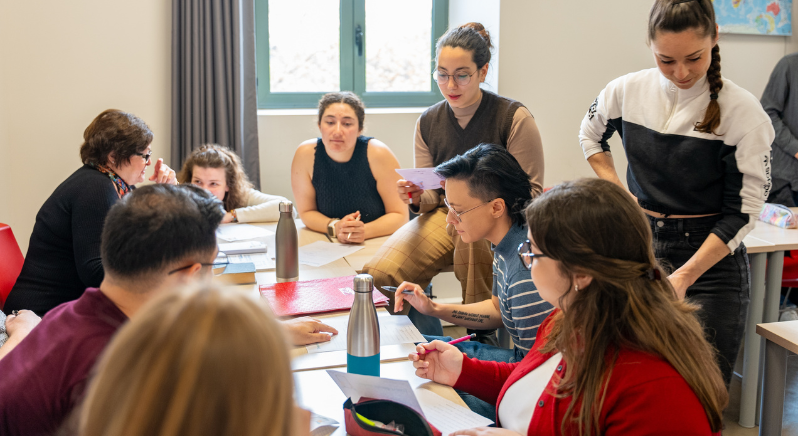Learning French opens doors to rich cultural experiences, new relationships, and exciting opportunities. One of the foundational steps in mastering French is familiarizing yourself with its common verbs and nouns. These essential building blocks will boost your confidence and competence in everyday conversations.
In this article, we’ll explore some of the most frequently used verbs and nouns in French, providing you with a strong foundation to build upon.
Common Verbs in French
French verbs are pivotal in constructing sentences and expressing actions. Here are some of the most common verbs you should know:
Être (to be)
The verb “être” is fundamental, used to describe identity, states of being, and characteristics.
- Je suis (I am)
- Tu es (You are)
- Il/Elle est (He/She is)
Avoir (to have)
“Avoir” is crucial for expressing possession and various idiomatic expressions.
- J’ai (I have)
- Nous avons (We have)
- Ils/Elles ont (They have)
Aller (to go)
“Aller” is often used to indicate movement or future intentions.
- Je vais (I go)
- Vous allez (You go)
- Ils/Elles vont (They go)
Faire (to do/make)
“Faire” covers a wide range of activities and actions.
- Je fais (I do/make)
- Nous faisons (We do/make)
- Ils/Elles font (They do/make)
These verbs are among the most commonly used in daily interactions. Mastering their conjugations and uses will significantly enhance your French language skills.

Most Used Verbs Conjugation
Understanding the conjugation of common French verbs in various tenses is essential for effective communication. The present, imparfait, passé composé, and futur tenses are the most frequently used in French because they cover essential aspects of communication.
The present tense is versatile, describing current actions, habitual behaviors, general truths, and near-future events. The imparfait is used for ongoing or repeated past actions and background descriptions, while the passé composé (more common in speech than passé simple) narrates completed past actions. The future tense is crucial for discussing plans and predictions.
Être (to be)
| Tense | Je | Tu | Il/Elle | Nous | Vous | Ils/Elles |
|---|---|---|---|---|---|---|
| Présent | suis | es | est | sommes | êtes | sont |
| Imparfait | étais | étais | était | étions | étiez | étaient |
| Passé Composé | ai été | as été | a été | avons été | avez été | ont été |
| Futur | serai | seras | sera | serons | serez | seront |
Avoir (to have)
| Tense | Je | Tu | Il/Elle | Nous | Vous | Ils/Elles |
|---|---|---|---|---|---|---|
| Présent | ai | as | a | avons | avez | ont |
| Imparfait | avais | avais | avait | avions | aviez | avaient |
| Passé Composé | ai eu | as eu | a eu | avons eu | avez eu | ont eu |
| Futur | aurai | auras | aura | aurons | aurez | auront |
Aller (to go)
| Tense | Je | Tu | Il/Elle | Nous | Vous | Ils/Elles |
|---|---|---|---|---|---|---|
| Présent | vais | vas | va | allons | allez | vont |
| Imparfait | allais | allais | allait | allions | alliez | allaient |
| Passé Composé | suis allé | es allé | est allé(e) | sommes allé(e)s | êtes allé(e)(s) | sont allé(e)s |
| Futur | irai | iras | ira | irons | irez | iront |
Faire (to do/make)
| Tense | Je | Tu | Il/Elle | Nous | Vous | Ils/Elles |
|---|---|---|---|---|---|---|
| Présent | fais | fais | fait | faisons | faites | font |
| Imparfait | faisais | faisais | faisait | faisions | faisiez | faisaient |
| Passé Composé | ai fait | as fait | a fait | avons fait | avez fait | ont fait |
| Futur | ferai | feras | fera | ferons | ferez | feront |

Common Nouns in French
Nouns are the backbone of any language, representing people, places, things, and ideas. While there are countless nouns in French, the Pareto Principle, or the 80-20 rule, suggests that 20% of these nouns are used in 80% of everyday conversations.
Here are some frequently used French nouns:
| Noun (French) | Translation (English) | Noun (French) | Translation (English) |
|---|---|---|---|
| L’ami(e) | Friend | Le téléphone | Phone |
| La famille | Family | La voiture | Car |
| La mère | Mother | Le sac | Bag |
| Le père | Father | L’ordinateur | Computer |
| Le frère | Brother | Le pain | Bread |
| La sœur | Sister | Le vin | Wine |
| Le bébé | Baby | L’eau | Water |
| L’enfant | Child | Le fromage | Cheese |
| Le voisin | Neighbor (male) | Le café | Coffee |
| La voisine | Neighbor (female) | Le fruit | Fruit |
| L’école | School | La pomme | Apple |
| La maison | House/Home | La table | Table |
| Le bureau | Office | La chaise | Chair |
| Le magasin | Store | Le lit | Bed |
| Le parc | Park | La porte | Door |
| Le livre | Book | La fenêtre | Window |
| Le stylo | Pen | La clé | Key |

3 Tips for Learning French Vocabulary
Building a robust vocabulary requires practice and exposure. Here are some tips to help you along the way:
- Flashcard Apps: Create flashcards with the French word on one side and the English translation on the other. This method is excellent for memorization and quick review. Combined with a spaced repetition system such as Anki, it is a powerful tool to implement new words and expressions long-term in your memory.
- Label Your Environment: Place labels on objects around your home or study space with their French names. This constant visual reminder reinforces learning.
- Read Regularly: Reading French books, articles, or blogs exposes you to new words in context, aiding retention and comprehension. It is easier to remember a word in context with other words around it.
If you are new to the French language and looking to make quick progress, start by focusing on the essentials and learn the basic rules. You’ll find yourself better equipped to handle everyday conversations and express yourself more fluently.











